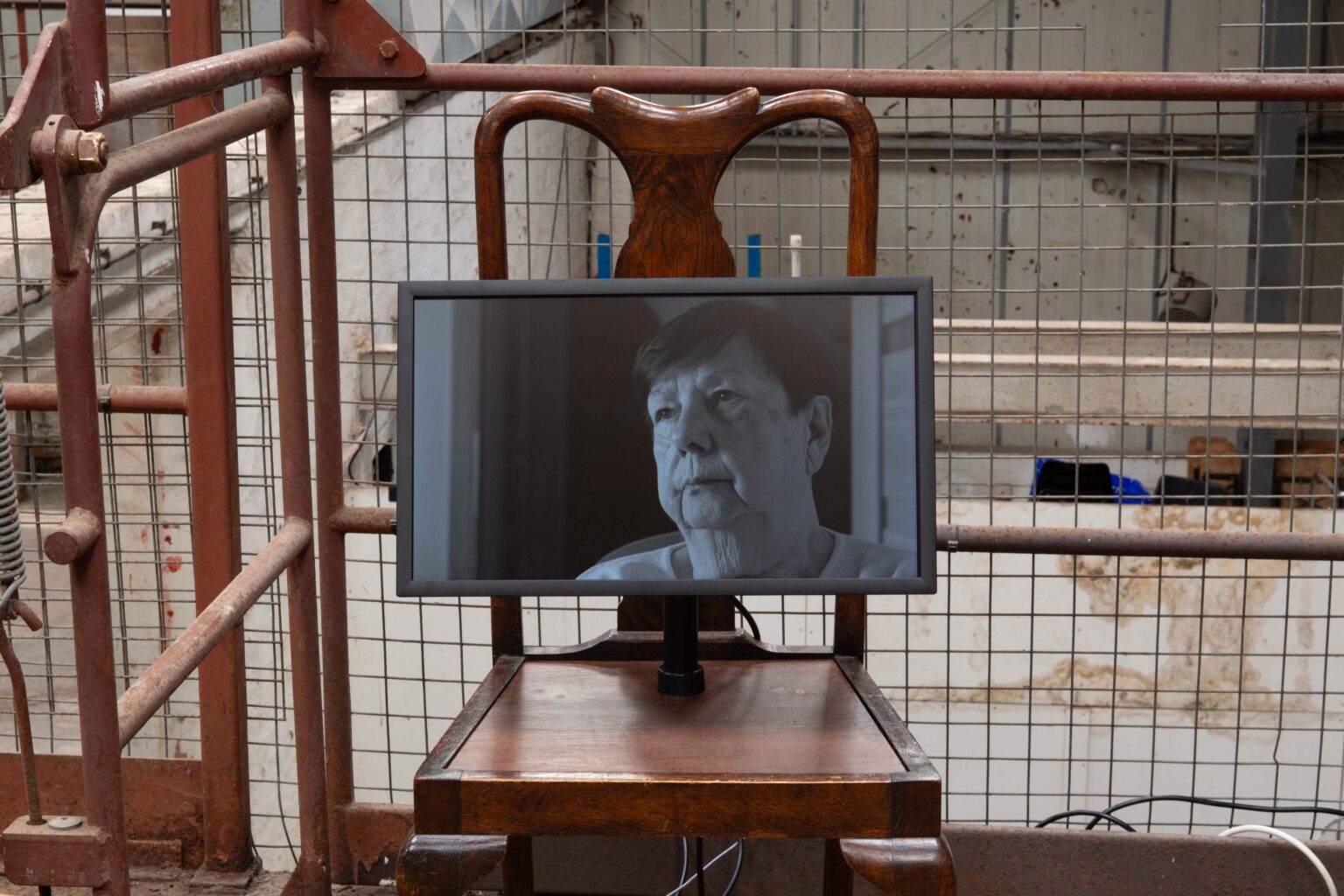Master of Fine Art School of Fine Art Uncategorized
Julita Hanlon

Julita Hanlon, a Polish-born and Glasgow-based multi-disciplinary artist, draws heavily from her own life in her work. Her practice, which is in part autobiographical, is a response to current affairs and is centred around the themes of migration, injustice, and prejudice. This personal touch adds a human element to her art, making it more relatable to her audience.
Hanlon’s current body of work is a testament to her intellectual curiosity and the depth of her research. Inspired by the writings of Jacques Derrida and Franz Kafka and fuelled by real-life experiences gathered through interviews with migrants, her art investigates the complex ideas of home, migration, and macro-hospitality.
By skilfully weaving together the personal and the universal in her videos and her installations, Hanlon creates a body of work that resonates with the impermanence of home. Her work challenges the understanding of home as a specific geographical location, a birthplace, and investigates the necessity of a shared context or a common language for mutual understanding as a universal experience.
Hanlon exploits the capacity of the materials and their processes to generate symbolic meanings that can support her visual language. Combining the softness and pliability of fibre and the harshness of metal allows her to create works that stand as metaphors for the journey and transformation of migration. Her use of embroidery and text brings a personal dimension to her work, reflecting an experiences shared with other migrants.

Conversations [A Stranger]
I don’t know when the worn-out paths became strangers
and the strangers became so familiar
When did our conversations once so rich in meaning
Full of aches, arguments and laughter
became predictable
And our closeness turned into an awkward construct natured by nostalgia
When did the language of my youth became so difficult to recall
Its poetry eludes me now
I want to sing about the shades of colours and emotions
But my expressions are barren
When did I lose myself on the path between longing and hope
In the fear of being inadequate or misunderstood
When did the pasts collide
And we found ourselves entangled in a net or differences
That weren’t there before
Who am I now
When I don’t know my language anymore
When my history altered by the turmoil of change
Is no longer shared
And your history is not mine yet
When your language is still a stranger in my mouth
In my ears
I was once like a dandelion seed
Happily dancing on the wind of youth
In the land that I did not grow up in
I am torn and rooted at the same time
I am witnessed by the moon
And caressed by the sun
At once the same and yet unfamiliar
In the moments of realisation
I hold on to the bits that are me
Not wanting to let go
Tearing and reconstructing the paper towers of memories
The collages of faces
Paths and places that no longer exists
Words that lost their meanings
And words that I am yet to learn
I am a traveller in time
In history
In space
With the heart and feat at a discord
Out of step with myself
Always on the move
Never settled
A construct of identities as artificial as the borders
I am welcomed and despised
Always a stranger


Conversations [Do you understand?]
When I came to Scotland to learn English, I arrived without the knowledge of the language and became acutely aware of a gesture as my only means of communication. It took me years to be able to understand the nuances of local humour and to tell jokes in English, and yet this ease of communication is crucial to being recognised as familial. But speaking the same language is not the end of the story. Understanding each other is a much more complex concept and this work, just as the wider Conversations series, is my reflection, and my invitation for you to consider: What happens when a gesture is all that you can go on, the only means of communication? Amongst the voices which are non-comprehensible? Amongst the words that you understand but the meaning of which escapes you? When your calls for justice and peace are unheard or misinterpreted? When you reach out but are rejected? Just ponder, please.


Conversations [Which way…?]
The paths of the morning are drenched in the sunlight
Faded traces of times past
Trodden back and forth
Strangers increasingly familiar
Like the spiderweb of a dream catcher
Promising that memories can come alive again
Which way is home?
Thin strings of conversations
Threads of old stories
Shadows of fleeting moments that we have shared
Which way is home?
The strangeness of my mother tongue
Like a cut of an umbilical cord
Is leaving me devoid of its poetry
Of its nourishment
In the violence of becoming a stranger
I ask
Which way is home?
An intruder in my mother’s hand
Cutting through the fabric of the distance
Cold, impatient and impartial
The conjurer of illusion that we are still together
Still close
Against your glass surface
I search for the softness of her skill
Her warmth
Recalling her gentle perfume
I ask
Which way is home?
I watch the lines on my husband’s face
Carving their new paths each day
Matching my own
Memories woven into a cloth that binds us together
Which way is home?
There is a stubble on my children’s cheeks now
And I delight in their occasional embrace
Melting in these moments of a rare affection
I keep asking
Which way is home?









